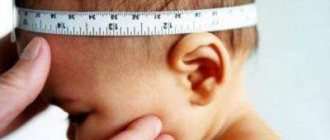Considering that most of Russia and the CIS countries are located in northern latitudes, 90% of children living in this territory are deficient in vitamin D.
Paradoxically, breastfed babies are also at risk. Babies on artificial nutrition, although they receive formulas enriched with cholecalciferol, also need additional intake. From our article you will learn how to properly give vitamin D to children, whether you need to take calciferol preparations in the summer and where to buy the most useful supplements.
Age differences in children
A small child is called both a newborn and an infant, but these are different periods in the baby’s life. A newly born baby is called a newborn, this will continue for 1 month. More precisely, the neonatal period lasts 28 days. This is the time of adaptation of the body to extrauterine life.
Until the age of 1 year, the baby will be called a baby, regardless of whether he is fed breast milk or artificial formula. At this time, the body undergoes rapid physical and psychological development. The time of newbornhood enters the infant period.
Dosage
Babies receive nutrients either from breast milk or from formula. However, practice shows that there is still a strong lack of vitamin D3 in the child’s body. Pediatricians are forced to prescribe supplements to prevent deficiency.
For healthy newborns, the average prophylactic dosage is 400 IU (international units) per day. Babies born at 37 weeks are prescribed 800 IU. Increase the amount of vitamin D for twins at the discretion of the doctor. An increased daily dosage is recommended for newborns with diseases of the digestive and immune systems.
For infants, the average daily dosage is 400 IU. The World Health Organization recommends that children be given vitamin D3 throughout their growth period.
Why does a newborn baby need vitamin D3?
The component in drops is prescribed to almost every baby, especially in autumn and winter. The main goal of the course is the prevention of rickets. The importance of calciferol for an infant is explained by intensive growth.
Vitamin D plays a huge role in the life of a small organism:
- participation in the absorption of calcium and phosphorus, which is necessary for normal growth of teeth and bones;
- reducing the manifestation of inflammatory processes; direct impact on the formation of a strong bone and cartilaginous skeleton;
- ensuring full metabolism; improving the condition and appearance of the skin of a newborn baby, as well as ensuring normal regeneration;
- formation of visual function.
You also need to take vitamin D for the development of skeletal muscles. With its regular intake into the body, resistance to diseases and infectious diseases increases. The ability of calciferol to prevent disorders of the cardiovascular system has been proven.
Even the full functioning of the thyroid gland is impossible with a lack of vitamin D3. Therefore, preparations containing it are recommended for adults and pregnant women.
Release form
Manufacturers produce vitamins for children in different forms. For newborns and infants, the liquid form of release in drops is convenient. On sale it is most often presented in aqueous and oil solutions. The doctor prescribes one of them depending on the baby’s health condition.
The solutions are easy to dispense. The average daily dose is one drop. It can be dripped onto the baby’s tongue, the inside of the lower lip, or added to water or milk. In this form, nutrients are absorbed faster and better, and there is less risk of allergic reactions.
Choice of solution
Vitamins for infants d3 currently exist in water and oil form. They can be purchased at any pharmacy.
Which one should you choose? In most cases, it is prescribed to give an aqueous solution, since it accumulates less in the body and rarely leads to an overdose. For security purposes, this is what they use. Therefore, most pharmaceutical companies have abandoned the production of vitamin D3 oils for infants. To treat rickets, as a rule, water-based products are used, while both types are suitable for the prevention of the disease.
The best place to buy is iHerb
High-quality vitamin preparations can be purchased in the American online store iHerb. The site presents products from leading manufacturers. Purchasing products on the iHerb website is beneficial for several reasons:
- prices are lower due to the elimination of intermediaries;
- products from major companies in the USA, European Union, Japan, Korea, and China are presented;
- the online store sells products that have quality certificates;
- on the website you can get advice about the product and placing an order from the support service around the clock;
- the order is sent to any country;
- the online store constantly holds promotions that allow you to reduce the cost of purchasing goods;
- On the website you can find negative and positive customer reviews about the product.
When placing an order for a certain amount, you can receive free delivery to Russia.
Place #1: California Gold Nutrition
California Gold Nutrition, Children's Vitamin D3 Drops, 400 IU, 10 ml
More details
The well-known American manufacturer of health products California Gold Nutrition produces drugs for children. They are recommended to be taken from birth to 3 years. This is an oil solution. Contains only vitamin D3 in the form of cholecalciferol. It is better absorbed in the body; it is the most active form of vitamin D. To obtain an oil base, the manufacturer added a little coconut oil.
This supplement is extremely popular; there is also a separate article dedicated to it on our website, which you can read by following the link.
The standard dosage for children in the first year of life is 1 drop, which contains 400 IU. The doctor may change the dosage at his own discretion. The package contains 300 servings. This is enough for almost a year of admission. A drop can be added to milk mixture, porridge, mixtures, or given from a spoon. It is not recommended to mix juice and water. This is a fat-soluble substance, which must be taken into account when mixing and taking.
The manufacturer produces the drug in a dark glass bottle, and it should be stored in it in a dry and dark place at room temperature from 20 to 25 ° C.
It is important not to exceed the prescribed dosage, then there will be no side effects in the child. The drug is well tolerated and easily absorbed.
Contraindications for use are individual intolerance and allergies.
It is not recommended to give the baby a dietary supplement on an empty stomach; there is a risk of digestive disorders. You cannot use dietary supplements and medications at the same time. Be sure to take a break of 2 hours between doses.
Why do babies need vitamin D?
Vitamin D has many beneficial properties. So, its advantages include:
- the ability to create the basis for the normal development of the skeletal system;
- increasing the immunity of infants;
- reducing the likelihood of inflammatory processes;
- participation in the synthesis of peptides, which, in turn, regulate blood pressure levels, insulin levels, normalizing the functioning of the nervous system;
- protection against the development of diabetes, rheumatoid arthritis, and cancer.
In general, the name “vitamin D” is a group of five components that are similar to each other in their properties and structure. Of these, the best known are vitamin D2 (ergocalciferol) and vitamin D3 (cholecalciferol).
Most vitamin D is “produced” in the skin under the influence of the sun, then it is converted into D3 in the body. The main condition for the production of cholecalciferol is clean air. Foods do not contain enough vitamin D to meet the body's needs. The main sources of vitamin D are:
- seafood;
- beef;
- fish fat;
- sea fish - mackerel, herring, mackerel, tuna;
- butter;
- raw egg yolks.
But for infants, the required dose of vitamin D from food is not feasible, and its source remains only sunlight.
Place #2: ChildLife
ChildLife, Vitamin D3, Natural Berry Flavor, 30 ml
More details
Especially for young children, ChildLife produces D3 with berry flavor. This is an aqueous solution of the vitamin containing deionized water. An aqueous solution is recommended for children with gastrointestinal problems, when there are not enough enzymes to break down the fatty base of the oil solution. Many mothers resort to an aqueous solution when their baby experiences a period of intestinal colic.
The manufacturer recommends giving children under 1 year 6 drops daily, after 1 year 8 drops daily. The bottle contains approximately 115 servings.
- 1 drop of the supplement contains 65.2 IU of vitamin D3.
- 6 drops of the supplement contain 375 IU of vitamin D3, which is very close to 400 IU. But this is exactly what the prophylactic dose is for children from birth to one year.
- 8 drops contain 500 IU.
The dietary supplement should be stored in a cool, dry place, away from small children and pets. Do not allow direct sunlight to penetrate the vitamin preparation.
During production, no substances that can cause allergic reactions were used, i.e. gluten, nuts, casein, seafood, milk, alcohol. For this reason, the development of side effects is minimal.
The only restrictions on admission will be individual intolerance to the components.
For successful absorption, shake the bottle before use. The best time to use dietary supplements is morning. You can add the drug to cereals, milk mixtures
Place #3: Ddrops
Ddrops, for children, liquid vitamin D3, 400 IU, 90 drops, 2.5 ml
More details
Oil-based vitamin D3 is presented by a well-known manufacturer of dietary supplements - the company Ddrops. Diluted with D3 quality coconut oil.
The manufacturer recommends taking 1 drop daily. One drop contains 400 IU (10 µg) of active substance.
The bottle has a built-in special dispenser that allows you to measure one drop at a time without much effort. The liquid is tasteless and odorless. The bottle contains 90 servings, designed for 3 months of use.
The bottle with the drug should be stored in an upright position at room temperature from 20 to 25 ° C. An open bottle expires 90 days after opening.
Side effects will not occur if you follow the prescribed dosage.
If unusual symptoms appear, you should consult a doctor.
A contraindication for use is individual intolerance to the components of the vitamin preparation.
For better absorption, the manufacturer recommends applying a drop of the supplement to the mother’s breast or a clean finger and letting the baby suck for about 30 seconds. You can mix the drug with food. It should be a fatty product, since vitamin D3 is a fat-soluble substance. Can be diluted in milk, porridge, formula.
Place #4: Nordic Naturals
Nordic Naturals, Vitamin D3 Drops, Children, 400 IU, 11 ml
More details
The Nordic Naturals company produces high-quality drugs for improving the health of the body, including for children. Drops with vitamin D3 are produced on an oil base, which is formed by cold-pressed olive oil. D3 is presented in the most easily digestible form of cholecalciferol.
This supplement can be chosen by those mothers who are afraid of an allergic reaction in children to coconut oil from previous products.
Please note that the rating for this product is quite high, despite the small number of reviews, this indicates that the supplement is of very high quality, like everything that this company produces, but it has been presented on the site for less time than the previous ones.
It is recommended to take 1 drop, which contains 400 IU. The package contains approximately 365 servings, which is enough for one child to consume for a year. Before taking it, you should definitely consult with your pediatrician.
It is recommended to store the vitamin preparation in an upright position, in a cool, dry place, away from small children and pets.
It is necessary to ensure the correct dosage, this will help avoid side effects. The manufacturer does not use flavors or dyes, so the risk of an allergic reaction is minimized.
There are no contraindications to taking this dietary supplement other than individual intolerance.
For better absorption of the drug, it should be given to the child with food containing fat. It can be porridge, milk mixtures. You can drop it on your mother's breast before feeding. It is not recommended to mix the dietary supplement with juice or water. Fat-soluble D3 will be poorly absorbed. Also, the baby may not finish the drink. To control intake, it is better to give a drop from a spoon.
Place #5:
Natural Factors, Children's Vitamin D3 Drops, Unflavored, 10 mcg (400 IU), 15 ml
More details
Since 1950, the American company has been producing fortified food products. Own lands allow the company to grow ecological raw materials for the production of its dietary supplements.
The children's dietary supplement is made on an oil basis with the addition of coconut and flaxseed oil. It is recommended to take 1 drop for children under 1 year of age.
1 drop contains 400 IU of vitamin D3 in the form of cholecalciferol.
Your doctor may change the dosage. Shake the bottle before use. It is better to give the dietary supplement from a spoon. When added to drinks, it is difficult to control the consumption of the beneficial element.
The package contains 500 drops, which is enough for a baby.
The dietary supplement should be stored in a cool, dry place at room temperature and average humidity. At the same time, the access of small children and pets must be excluded.
The dietary supplement does not cause negative side effects, provided the dosage is followed. Excess can cause the development of an allergic reaction - redness on the skin, burning, diarrhea. If such symptoms occur, you should consult a doctor.
Contraindication – individual intolerance. Before use, be sure to consult a doctor. Only a specialist prescribes the dosage depending on health status, age, and other factors.
Leaders with cholecalciferol and calcium (TOP-3)
The combination of calcium and cholecalciferol is very effective. When used together, calcium is better absorbed and calciferol performs its main effect.
No. 3 PharmaMed, Vitamins Calcium+D
Vitamins Calcium+, chewable lozenges, n60
from 550 ₽
Buy
Product from Germany. Produced by the German pharmaceutical company Pharma Med. Chewing candies in the form of figures, which children like. Includes daily dose of substances. Vitamins are prescribed from the age of three, one tablet per day.
№2 L'il Critters, Calcium + D3, Bone Support, Natural Fruit Flavors
L'il Critters, Calcium & Vitamin D3, Bone Support, Natural Fruit Flavors, 60 Chewable Tablets
965 ₽
Buy at a discount
American product. There are 150 candies in a package, two are recommended per day. Allowed from the age of two. Does not contain preservatives or artificial substances. Kids like it.
№1 Solgar, U Cubes, Children's Calcium With D Gummies
Solgar, U-Cubes, Children's D3 Gummies with Calcium, 120 Gummies
1 153 ₽
Buy at a discount
The product line of the American corporation Solgar has been known since 1947. It has a good reputation among consumers. Made from natural raw materials. Solgar candies are sold in packs of 60 and 120. Children from two years old are allowed two per day.
Location #6: Carlson Labs
Carlson Labs, Super Daily, Children's Vitamin D3, 10 mcg (400 IU), 10.3 ml
More details
An oil solution of vitamin D3 for newborns and infants is presented by Carlson Labs, Super Daily. The vitamin is added in an easy-to-absorb form of cholecalciferol, coconut and palm oil are used.
The manufacturer recommends giving newborns and children under 2 years of age 1 (400 IU) drop daily. A convenient dispenser on the bottle allows you to accurately measure a drop of the drug. It is advisable to take it in the first half of the day so that the baby does not have problems falling asleep.
The package contains 365 servings. This is enough for 1 year of admission for one child. But the doctor may recommend a different regimen for using the dietary supplement.
The drug should be stored in the manufacturer's packaging, in an upright position. The storage place should be dry and dark, inaccessible to small children and pets.
The drug does not cause side effects if you follow the recommendations of the manufacturer and doctor and do not violate the dosage. If negative symptoms occur in the form of redness of the skin, rashes, or itching, you should consult a doctor.
Contraindication is intolerance to the components of the drug, the development of an allergic reaction.
Doctors recommend giving the dietary supplement from a spoon in diluted or pure form. When added to drinks, it is difficult to control that the baby has completely consumed the dietary supplement.
How to give vitamin D to infants?
Vitamin D for newborns and infants must be given in winter and autumn (from October to April). But in the case when the pediatrician prescribes a therapeutic dose of the vitamin, after a month’s course you need to take a break of one week.
There are oil (D2) and aqueous solutions (D3) of this vitamin. Pediatricians prefer to prescribe an aqueous solution, since it is better absorbed and easier to tolerate by children, and the toxicity of an aqueous solution is lower than that of an oil solution. In addition, vitamin D3 has a positive stimulus for the synthesis of its own provitamin D in the body.
If a mother forgets to give her baby vitamin D, or when the dosage is small, there is a risk of developing rickets. With timely diagnosis of the disease and proper treatment, rickets can be cured without complications.
Vitamin D should not be given to infants uncontrolled, without a doctor’s prescription. It is imperative to do tests to determine the level of calcium and phosphorus in the baby’s blood.
Place #7: Mommy's Bliss
Mommy's Bliss, Vitamin D, Organic Drops, Newborns 0 Months+, 3.24 ml
More details
Especially for newborns, the family company Mommy's Bliss produces an oil solution of vitamin D3. The oil base is made of organic sunflower oil; a small amount of vitamin E is added to maintain freshness. Vitamin E acts here as a natural preservative.
The manufacturer recommends taking one drop daily. The dietary supplement can be given undiluted or mixed with cereals, drinks, and infant formula.
One serving contains an average dosage per day of 400 IU. The package contains 90 servings. This is enough for 3 months of use.
It is advisable to store the dietary supplement in the manufacturer's packaging, in a cool, dry place at room temperature, out of reach of pets and small children.
The manufacturer strongly recommends not to exceed the dosage to eliminate possible side effects. If a rash, burning sensation on the skin, or convulsions appear, you should consult a doctor and stop taking the supplement.
Only individual intolerance is a contraindication to taking this dietary supplement. You should consult your doctor before taking it and observe your baby for the first time for several hours after the first use.
It is not recommended to take medications and dietary supplements at the same time; you need to separate the doses with an interval of 2 hours. It is better to give D3 in the morning so that there are no problems with falling asleep during the daytime and in the evening.
How does excess vitamin D manifest in newborns?
If you follow your doctor's instructions, the risk of signs of overdose is minimal. But with long-term use of large doses of calciferol, symptoms of its excess may appear in the child’s body:
- nausea and vomiting;
- lethargy, general weakness;
- restlessness and irritability;
- thirst, accompanied by the release of large amounts of urine.
Symptoms of an overdose may begin to bother you within the first day of taking the drugs and calciferol. In some infants they appear only after a few weeks.
If you suspect an overdose, you should contact your pediatrician and get tested for vitamin D levels in your body. If you continue taking it, calcium salts may be deposited in blood vessels and internal organs. Information about overdose is contained in the instructions.











